Where Do Palm Trees Grow in the United States?

Palm trees are often native to tropical paradises, but they can also be found in various regions across the United States. These iconic trees add a touch of the tropics to many American landscapes, from sunny beaches to arid deserts. Let’s explore where palm trees grow naturally in the U.S. and discover the climates palm trees grow in.
1. Florida
The Palm Tree Capital of the U.S.
Florida is home to a diverse array of palm trees, thanks to its warm climate and abundant sunshine. The state boasts over 30 native species, making it a haven for palm enthusiasts. Some popular palms found in Florida include:
What Palm Trees Naturally Grow In Florida
- Cabbage Palm (Sabal palmetto): The state tree of Florida, this palm is hardy and can tolerate both coastal and inland environments.
- Royal Palm (Roystonea regia): Known for its tall, elegant trunk, the Royal Palm is a staple in many Florida landscapes.
- Saw Palmetto (Serenoa repens): Commonly found in the wild, this low-growing palm is native to Florida's coastal and inland areas.
2. California
Are there palm trees in California? Yes, California is a palm lover’s paradise as California’s mild climate and varied landscapes make it an ideal location for many palm species. From the deserts to the coast, palms thrive in several regions:
- California Fan Palm (Washingtonia filifera): Native to the desert regions, this palm is the only palm tree native to California.
- Mexican Fan Palm (Washingtonia robusta): Often seen lining the streets of Los Angeles, this tall palm is iconic to Southern California’s urban landscape.
- Canary Island Date Palm (Phoenix canariensis): Frequently used in ornamental landscaping, this palm is found throughout California’s coastal and inland areas.
3. Texas
Palms in the Lone Star State
In Texas, palm trees can be found in various regions, particularly along the Gulf Coast and in the southern parts of the state. The warm climate supports several palm species, including:
- Texas Sabal Palm (Sabal mexicana): Native to the Rio Grande Valley, this palm is adapted to the warm, humid conditions of South Texas.
- Windmill Palm (Trachycarpus fortunei): Known for its cold tolerance, this palm can grow in northern parts of Texas as well.
- Pindo Palm (Butia capitata): This hardy palm is popular in Texas landscapes for its drought resistance and attractive appearance.
4. Arizona
Desert-Adapted Palms
Arizona’s arid climate may seem challenging for palm trees, but several species have adapted to thrive in these conditions:
- California Fan Palm (Washingtonia filifera): Found in desert oases, this palm is well-suited to Arizona’s dry environment.
- Mexican Fan Palm (Washingtonia robusta): Popular in urban landscaping, this palm is commonly seen in cities like Phoenix and Tucson.
- Mediterranean Fan Palm (Chamaerops humilis): Known for its ability to withstand heat and drought, this palm is a favorite in Arizona landscapes.
5. Southern Coastal States
Warmth and Palms Along the Coast
Palm trees are also prevalent along the southern coastal states, where mild winters and warm summers provide suitable conditions for growth. States like Georgia, Alabama, Louisiana, and Mississippi feature palms such as:
- Needle Palm (Rhapidophyllum hystrix): Native to the southeastern U.S., this hardy palm is highly cold-tolerant and can be found in the understory of forests.
- Palmetto Palm (Sabal palmetto): Widely distributed across the southeastern coastal areas, this palm is known for its resilience and adaptability.
- Windmill Palm (Trachycarpus fortunei): With its cold-hardy nature, this palm is often used in ornamental landscapes throughout the southern coastal states.
In the United States, palm trees bring a touch of the tropics to a variety of landscapes, from the sun-drenched shores of Florida and California to the arid deserts of Arizona. Their adaptability and striking appearance make them a popular choice for gardeners and landscapers looking to create a warm, inviting atmosphere. Whether you’re in the heart of the desert or by the coastal breeze, there’s a palm species that can thrive in your environment.
Discover Our Metal Yard Art & Landscaping Solutions
If you’re looking to upgrade your landscaping, we have the perfect collection of metal yard art for your space. From large garden sculptures to smaller pieces, such as metal succulents, barrel cacti, palm trees and more. These make a beautiful feature to your front yard and require ZERO watering or maintenance. Contact us today and we can help advise you on the best solutions for your yard. We also offer a FREE design service for your landscaping needs, so let us know if this is something you’d be interested in.
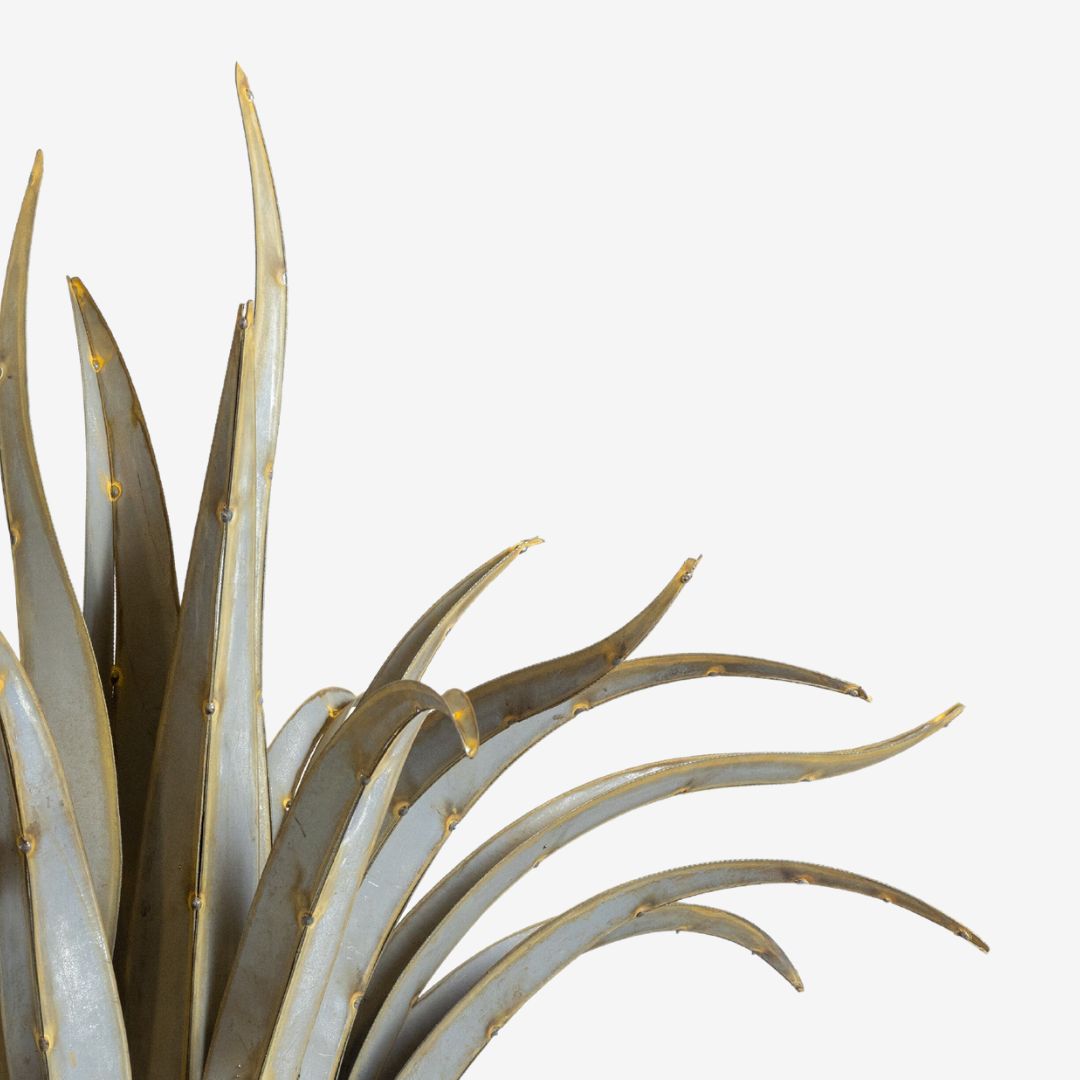 Agaves
Agaves
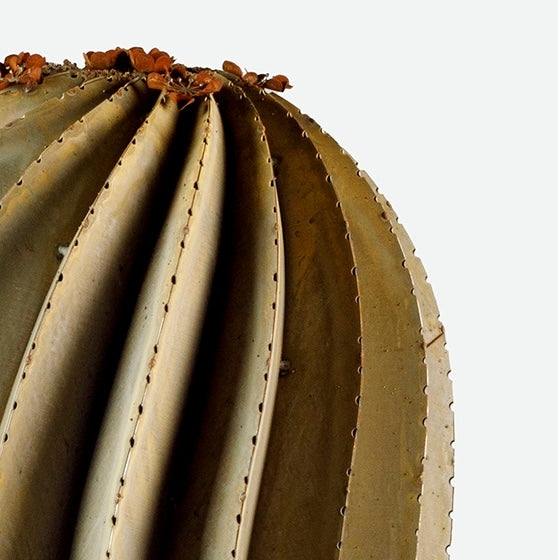 Barrel Cacti
Barrel Cacti
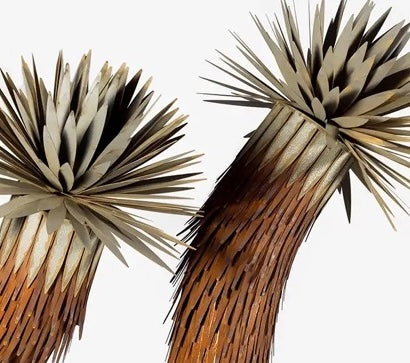 Joshua Trees
Joshua Trees
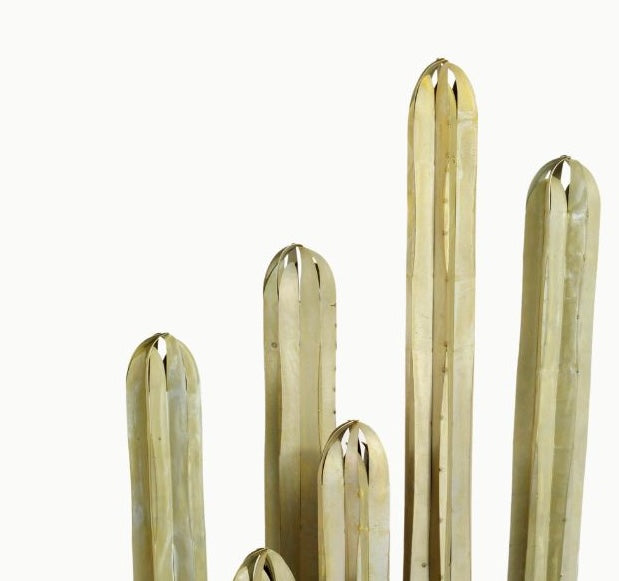 Mexican Fence Post
Mexican Fence Post
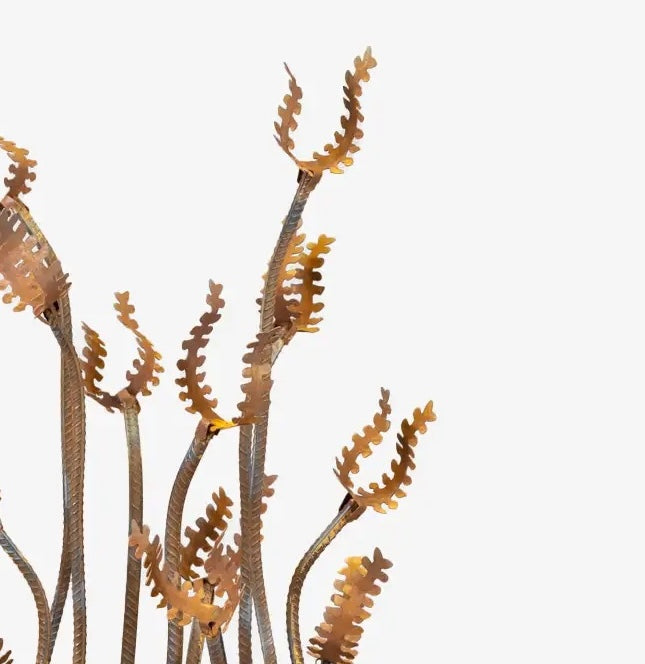 Ocotillo
Ocotillo
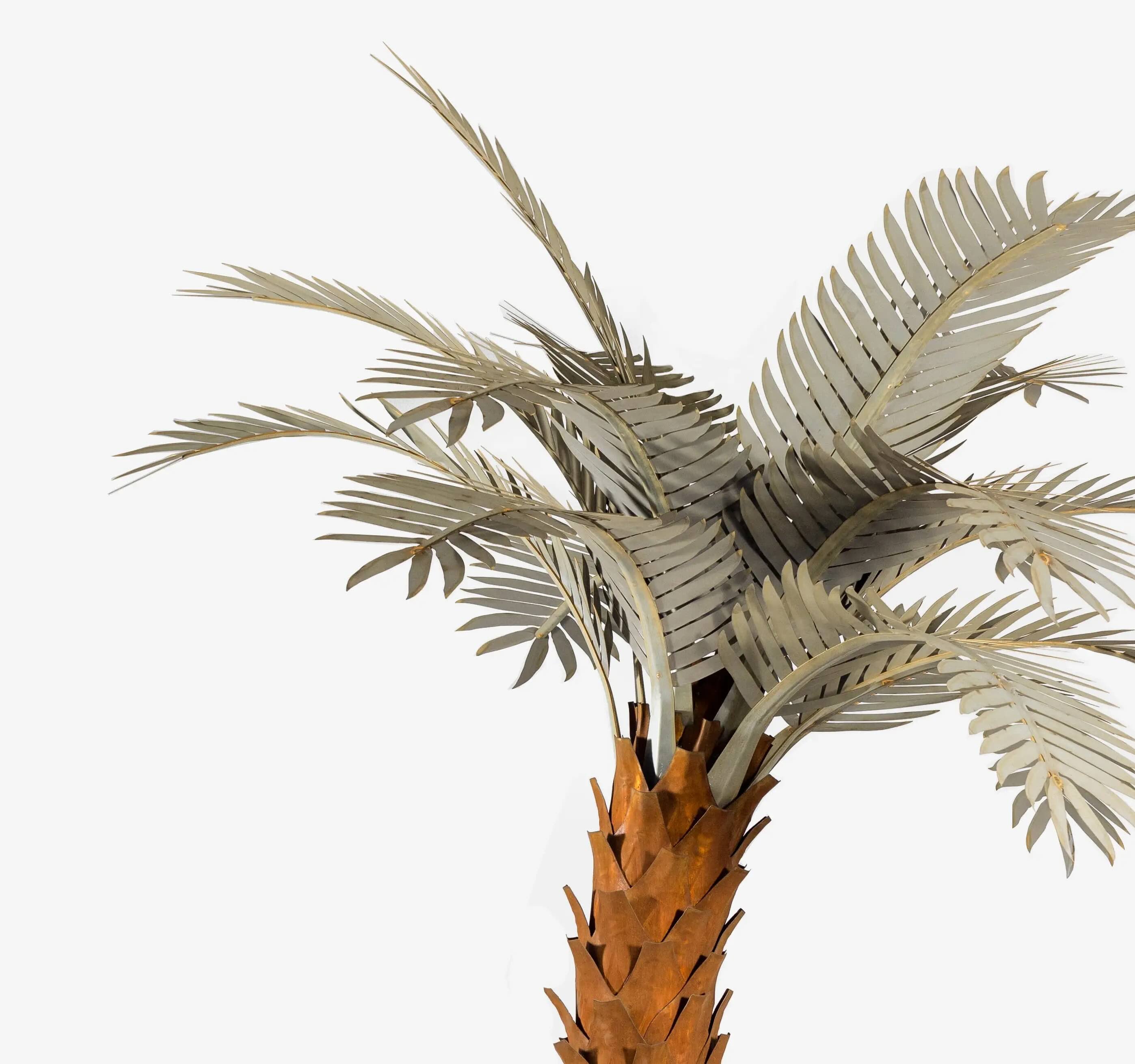 Palm Trees
Palm Trees
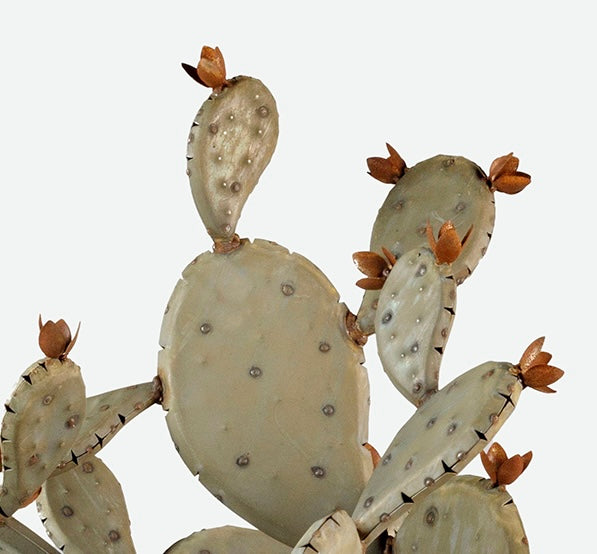 Prickly Pears
Prickly Pears
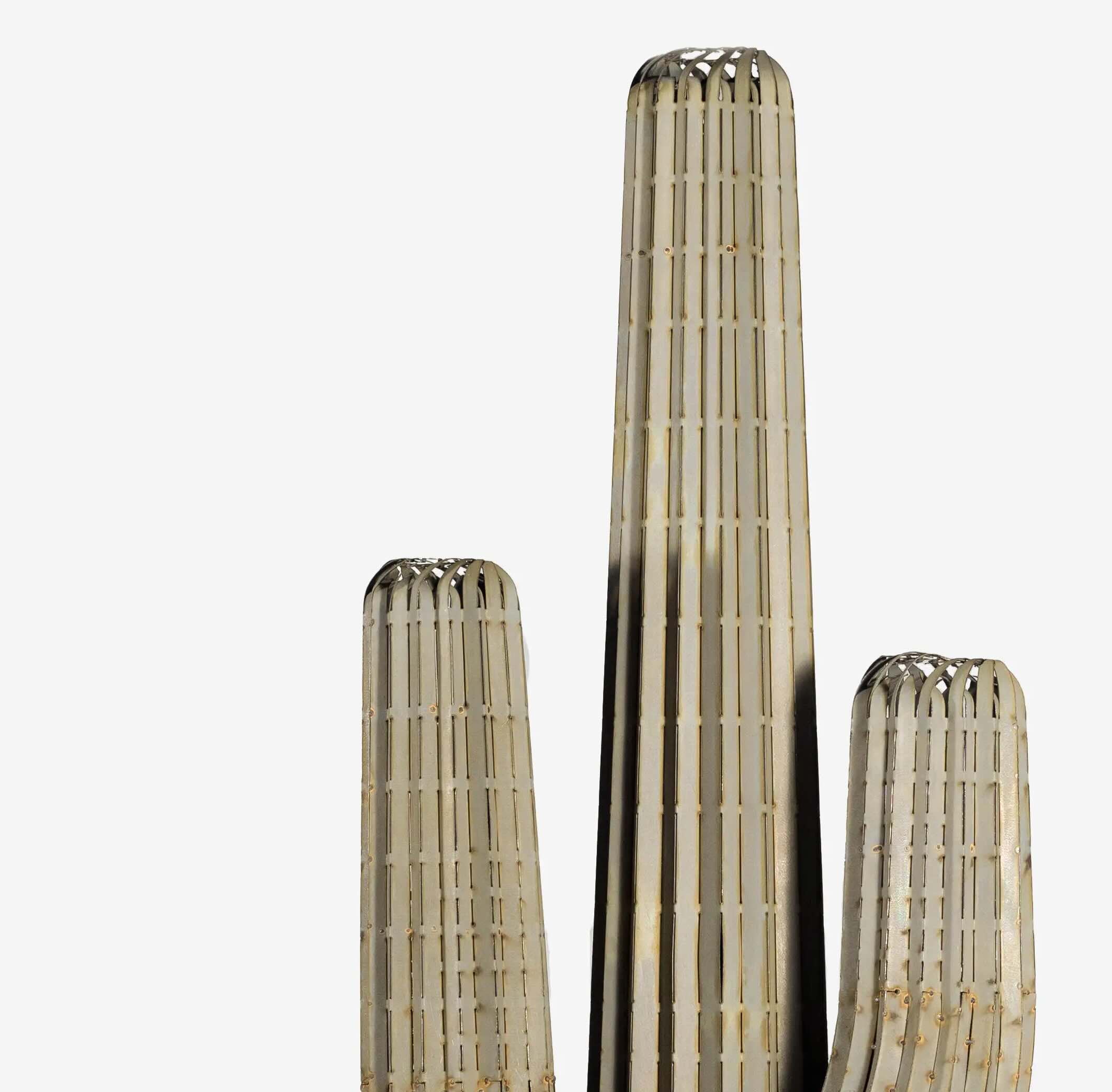 Saguaros
Saguaros
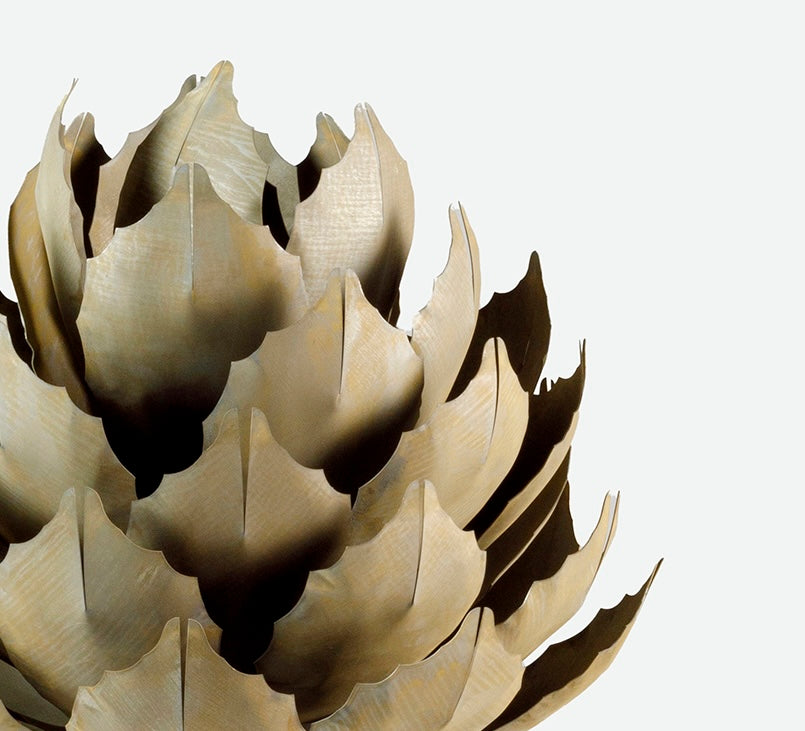 Succulents
Succulents

















































